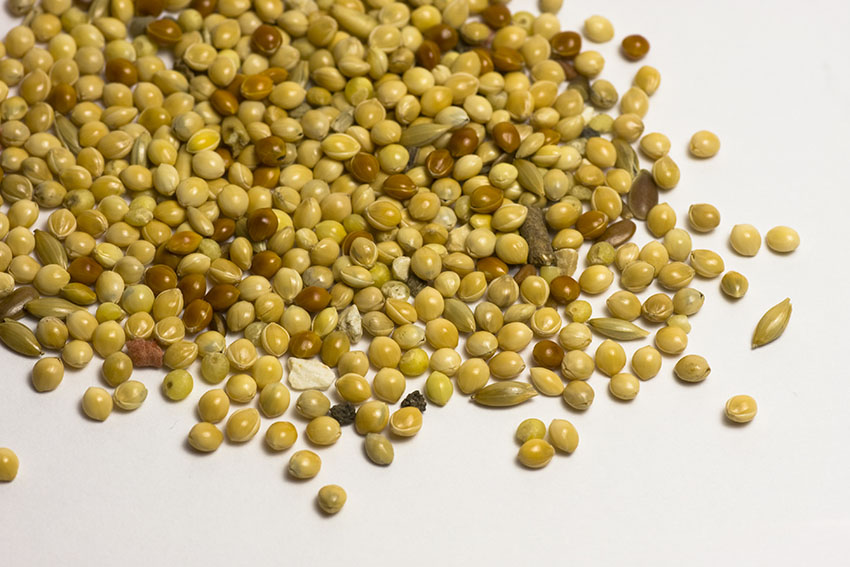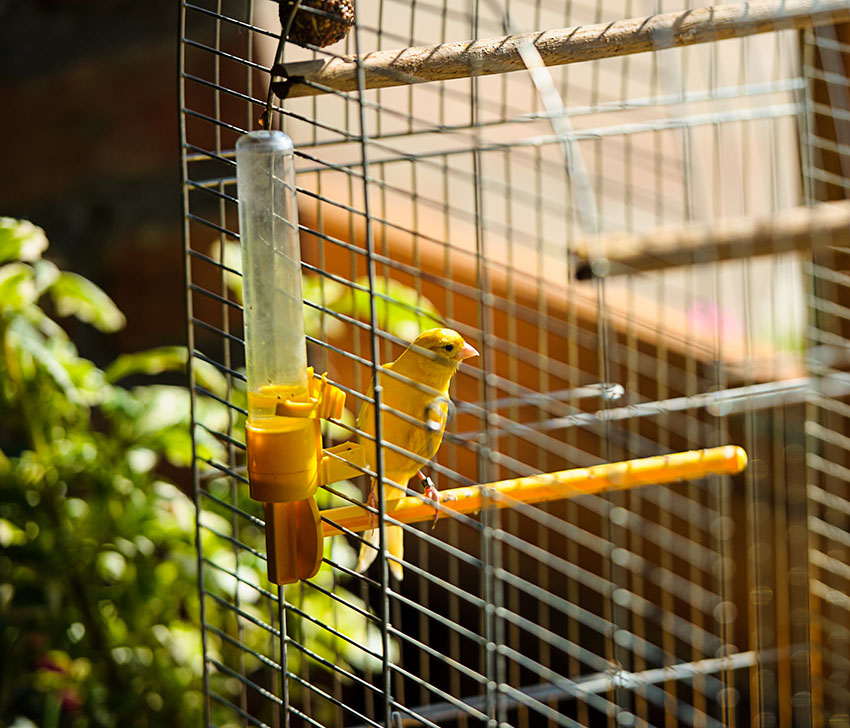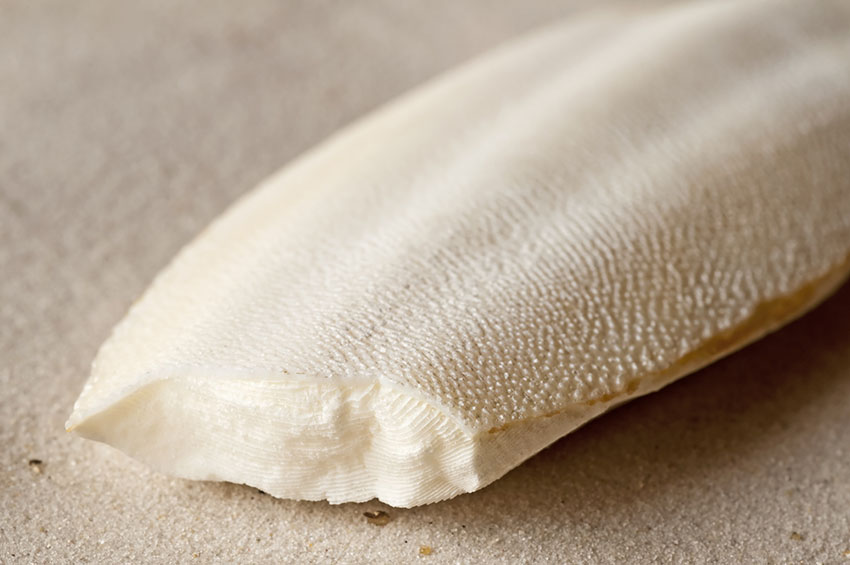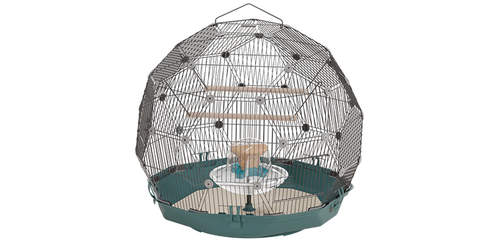Seed is a central element of all finches’ diets, and the most important element for many. Dried and sprouting seeds should, between them, represent at least 50% of the diet for the majority of species kept as pets. A good seed mix is therefore essential. But seed alone does not provide a balanced diet, even taking into consideration the fortified mixes available from pet suppliers. To maintain good health and keep your birds interested in their food, you should provide a mixture of dry seed, sprouting seed, shoots, fresh fruit and veg, and a little animal protein.

A good seed mix is a central part of any finch's diet
If the species of finch you are keeping requires anything different to the 'average' finch, your supplier will let you know. Always ask food questions, regardless of which bird you are buying. You can also find more information in Finch Breeds guide on the Omlet website.
Feeding Finches
The range of food choices in the following paragraphs may make finch-feeding sound complicated, but it isn’t really. The basics are very simple: finches get 50% of their dietary requirements from a well-balanced seed mix, including some sprouting seeds, and another 50% from fresh food, with added protein-rich supplements as and when required. That’s all you really need to remember, and as long as your seed is well sourced and your food is fresh, organic, and devoid of the items listed in the Unsuitable Food section below, you’ll do just fine. Variety amongst the fresh foods will prevent your birds from becoming fussy, and will make their lives interesting as they explore, or look forward to, different foods.
In addition to food, pet finches also need a constant water supply. This can be provided in bowls or purpose-made drinkers that clip to the side of cages. The water should be changed every day.

All cage birds need a supply of fresh water
Canary and Finch Pellets
Bird pellets are not as popular now as they were a few decades ago, although many breeders (particularly in the US) still use them as the basis of their bird feed. The high-quality ones provide complete nutrition for finches, but unless your birds have been reared on them, they won’t find them as interesting as a standard seed mix, and it’s very hard to wean a finch from seed to pellet.
Another word of warning: some branded pellets have preservatives and/or colouring added, and that’s a chemical addition your finches can do without. It’s best to assume that pellets are not essential, as long as you feed your birds a varied diet, and if you never buy them you won’t be doing the finches any harm, and they certainly won’t miss them.
If you do opt for pellets, they will cover 75% of the finches’ dietary requirements.
Mineral supplements
Your finches should always have a cuttlefish bone in their cage for extra calcium. These are generally sold with a clip for attaching the ‘bone’ to the side of the cage.

Cuttlefish bone is a good source of calcium
A mineral block is recommended too. These are marketed for budgies and larger parrots, but finches benefit from the vitamin and mineral top-up. The birds will take as much as they need, which eliminates the need for the dosage calculations necessary when adding a supplement to the birds’ water (which is yet another option). Some breeders feed ground-up chicken eggshells instead of shop-bought mineral supplements. These should be thoroughly cleaned by boiling, to kill bacteria.
Canary Food During Moulting
During the annual moult, a Canary will benefit from extra fatty seeds. Seed mixes will include a proportion of these, but you can offer an extra half-teaspoon in the bird’s mix every second day during moulting. Suitable fatty seeds include millet, flax, niger or hemp (see full list in the Finch Seed Mixes section, below). These will ensure that the new feathers are strong, healthy and shiny.



Comments
Bonnie, 6 March 2020
Does anyone know where to find a large horizontal finch cage large enough for 4 finches with 3/8 inch bar space. I am having trouble finding one large enough. I can find plenty of the tall cages but not horizontal ones.
Jane, 6 August 2018
Hello! Just an FYI, most Finch do not like whole Canola seed. I have found most of it on the floor or left at the bottom of the dish after all other seed is consumed (had a friend look after my birds one weekend and they assumed that there was still food in the bowl). They would not touch it. I believe it is simply "tag-dressing" for the protein content. Not sure what nutitionist is responsible for this. For poultry, in most cases, canola is heat-treated and ground before inclusion in the diet. Store bought finches will generally not eat pellets either and as they have such a high metabolic rate, tricky to try to get them on it as they need to eat frequently and have to have something else (such as seed) offered or they just won't eat. Just some food for thought. Watch those brands full of canola and pellets, most, if not all, will be wasted.